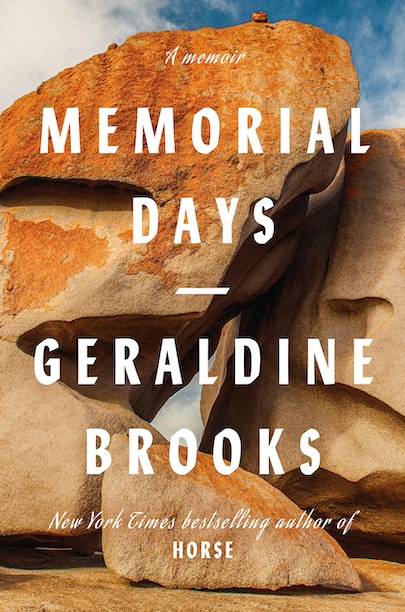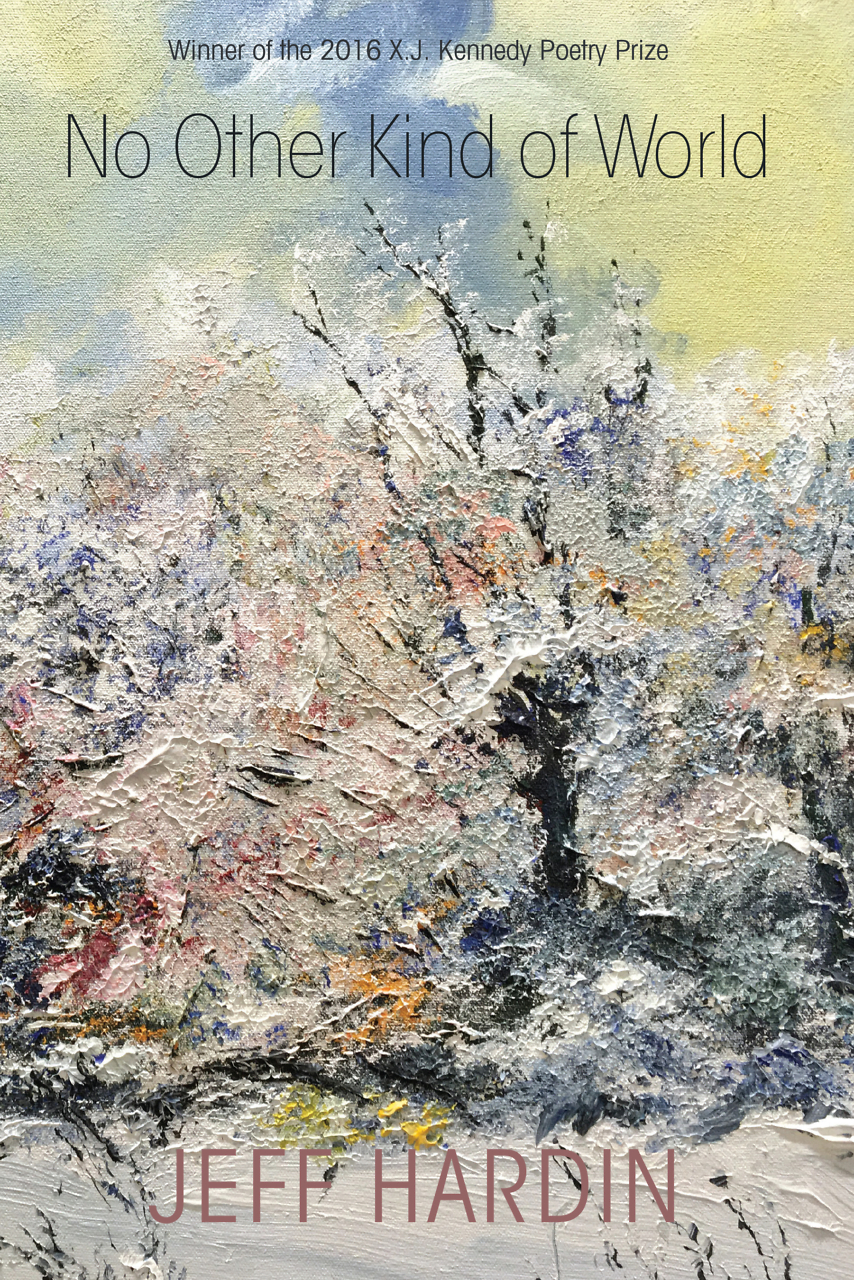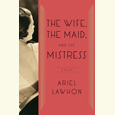Meet Me Deep in This Mystery
Moments of internal reckoning resonate in three recent poetry collections
Katherine Smith’s Secret City
Early in Secret City, a mother considers how well she has prepared her daughter for life beyond maternal protection: “You hope you taught her well enough / how to read the book of the world,” Smith writes, “and not be haunted by its strangeness.”
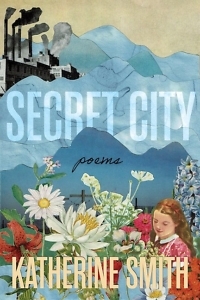 A Tennessee native who studied at UT Knoxville, Smith places a young Jewish girl, sent to live with a Christian family in World War II-era Oak Ridge, at the center of this engaging collection. The experiments taking place in the Oak Ridge plant loom at the edges of these poems, but the abundance of the natural world provides the book’s emotional and spiritual power source.
A Tennessee native who studied at UT Knoxville, Smith places a young Jewish girl, sent to live with a Christian family in World War II-era Oak Ridge, at the center of this engaging collection. The experiments taking place in the Oak Ridge plant loom at the edges of these poems, but the abundance of the natural world provides the book’s emotional and spiritual power source.
The smooth, polished voice of these poems belies a multitude of threats lurking beneath the surface of the girl’s life in a small mountain town, whether it’s the aggression of male peers (“Everything I need / to know about contempt, I learned from his face”), the insidious taint of religious prejudice (“her friend’s mother saying in one breath, Pass the gravy, please, / in the next You’re going to hell”), or the environmental destruction wrought by the federal facility (“Smoke rises, / loud whisper from the government factory”).
Surrounded by constant pressure to conform to church-centered beliefs, she instead embraces a sacredness found in the cycles and phenomena of nature: “You don’t even have to open your mouth / to call sugar to this world. / The berries tumble toward you, curious, / as large dark eyes.” This sense of abundance is neither simple nor sentimental but instead marbled with complexity: “All summer / in the South / wild things ripened to nuisance.”
As Smith’s perspective evolves, navigating a much wider circle of influences and conflicts, Secret City continues to prize rapt attention to the details of nature, rooting its spirit within its speakers’ observant experience of the senses, even as the frame of reference swells to include global concerns and intergenerational legacies.
Secret City
By Katherine Smith
Madville Publishing
102 pages
$18.95
Darius Stewart’s Intimacies in Borrowed Light
In his debut book-length collection, Knoxville native Darius Stewart plumbs resonant experiences of love, sex, addiction, violence, illness, and family — in poems that honor the perspectives of Black gay men. Accompanied by evocative illustrations by Annie Fletcher, Intimacies in Borrowed Light finds myriad ways to bring forward the vulnerable core of potent encounters and memories.
In all of Stewart’s poems, the sense of intimacy is so strong that we seem always to be drawn into the inner heart of a secret. He creates the impression that we are trading hushed observations on the most private of scenes, even when we’re learning about something as vast as a thunderstorm crashing overhead or as glamorously communal as a roomful of drag queens “jingling across a dance floor like scattered coins.”
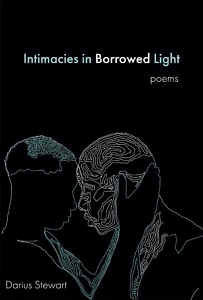 Stewart illuminates conflicted states of being that lead us to “misunderstand the world we grieve” but “to understand the grief.” “Auguries: A Love Story” fuses the harrowing momentum of a health crisis with the ominous collapse of a relationship. “Self-Portrait as Uncle on the Down Low” makes an exchange with a beloved niece fraught with unspoken recognition and tenuous connection.
Stewart illuminates conflicted states of being that lead us to “misunderstand the world we grieve” but “to understand the grief.” “Auguries: A Love Story” fuses the harrowing momentum of a health crisis with the ominous collapse of a relationship. “Self-Portrait as Uncle on the Down Low” makes an exchange with a beloved niece fraught with unspoken recognition and tenuous connection.
“Delirium Tremens” unfurls as an outpouring of wrenching, vulnerable images to describe “the body’s yearning to be sober” in a tumult of memorable ways, from a “prisoner’s cinema in a blacked-out room” to “covering the mouth when the volume’s turned to shrill in the third circle of hell” to “everyone fallen to their knees raking their past into charred hands.”
Even so, Stewart’s vision is not an unhopeful one. In it, beauty persists, as does the willingness to open again toward love and the possibility of connection. However lost we may be, he reminds us in the collection’s title poem, “this moment is one of the great palaces of the world.” Through such poems, Intimacies in Borrowed Light shines with original brightness.
Intimacies in Borrowed Light
By Darius Stewart
Eastover Press
150 pages
$20
Tyler Friend’s Him or Her or Whatever
“They,” the opening poem of Tyler Friend’s Him or Her or Whatever, takes on the complications and liberations of using they/them pronouns: “Yes, I contain myself, multitudinous / & mountainous. I can be hard to navigate.”
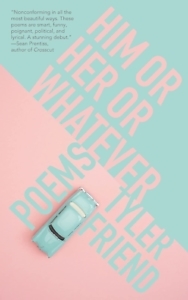 The immediate reference to Whitman sets the stage for one strong influence on Friend’s collection — engaging the history of LGBTQ American writers without feeling the need to pin identity or allegiance down too firmly. A poem called “Acorn Heart” declares: “Beat me to death with dictation. / Let me steep, then slop me everywhere.”
The immediate reference to Whitman sets the stage for one strong influence on Friend’s collection — engaging the history of LGBTQ American writers without feeling the need to pin identity or allegiance down too firmly. A poem called “Acorn Heart” declares: “Beat me to death with dictation. / Let me steep, then slop me everywhere.”
Friend grew up in Spring Hill, has lived in Lewisburg and worked in Nashville, and their poems incorporate the sometimes fraught experience of being queer in the South. At times blunt and confrontational, Friend’s poems are also cheeky and delightful, often opening up via tumults of imagery, ancient and contemporary, creating a sense of rapidity and multiplicity.
Numerous poems are overtly framed to echo the form and spirit of modernist American poet H.D. (or Hilda Doolittle). Friend’s “Artemis Speaks of Onions and Bread,” written in reference to H.D.’s “Orion Dead,” gives Artemis, that famously virginal goddess of the hunt, a chance to voice her desires: “These trees lift me up / & unburrow, the roots // splayed & sexy / like so many legs. Y’all think // I’m so chaste, but you just don’t know / what turns me on.”
Another standout poem is “Eater,” written after H.D.’s “Demeter.” Through the blazing voice of Demeter, the poem rages, teases, cycles on and on. “Little / lintels, these white altars: slaughter // & burn. Meet me deep in this mystery.”
After displaying her knowledge of men’s vagaries and the power she wields through desire and nature “entwined,” Demeter lands on a note that’s equal parts hope and warning: “Knot on // an oak, resinous. I resonate. I will heal / these hearts of men, one day.”
In Him or Her or Whatever, Friend brings a unique blend of whimsy, pragmatism, and classical echo to poems that center the everyday experiences of Southern queer people, celebrating the multitudes they contain.
Him or Her or Whatever
By Tyler Friend
Alternating Current
102 pages
$17.99

Emily Choate is the fiction editor of Peauxdunque Review and holds an M.F.A. from Sarah Lawrence College. Her fiction and essays have appeared in Mississippi Review, storySouth, Shenandoah, The Florida Review, Rappahannock Review, Atticus Review, Tupelo Quarterly, and elsewhere. She lives near Nashville, where she’s working on a novel.
